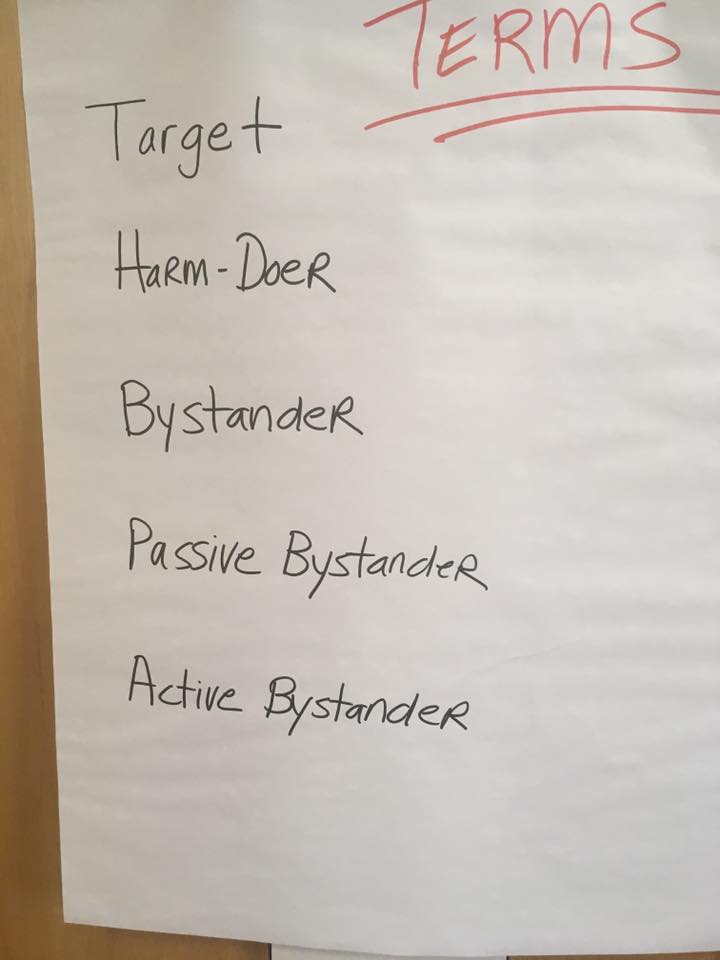We all need space for grace! In church, in our families, at work, in our neighborhoods, and, most importantly, in our own hearts.
After the events of this past weekend in Charlottesville, VA, we need even more space for grace. And space for safety, justice, and peace. For every human being. No one group of people gets to choose who has a right to live in safety.
Every single human being has that right. That is a birthright. A basic human right, regardless of color, religion, gender, sexual orientation, education, physical or mental ability, etc.
And it's up to us as the human race (and most certainly as followers of Jesus) to protect the safety and well-being of others.
I was going to share some of my interpretation of Matthew 7:1-20 that I preached on last Sunday. But I'm only going to stress one verse, commonly known as the Golden Rule:
"In everything, do to others as you would have them do to you." (Matthew 7:12)
IN EVERYTHING. Not just in church or on facebook. But in every day life, even when you get frustrated and irritated or you feel you haven't been treated fairly or haven't been heard. Do to others as you would have them do to you.
Not "some" others: Your family and friends, your church people, your race, your fellow Americans. "Others." To me that means, ALL OTHERS. Including your family and friends, your church people, your race, your fellow Americans. But also including your frenemies, Muslims, immigrants, people of all colors, and yes, white supremacists. Do to them as you would have them do to you.
Much, much easier said than done.
As mentioned in my previous blog post, it starts with me. Or, as Michael Jackson sang in 1987, "the man [I will add: woman] in the mirror."
Watch his video here:
I was at the rally against hate in Worcester on Sunday evening. I just needed to do something besides pray and put crying emojis on facebook. It was a powerful experience hearing people of different color, gender, religions and races speak and call us as white people out on our responsibilities. It was especially inspiring to see young, high school age! women of color speak.
And hurtful how they were yelled over by the crowd, "We can't hear you!"
Women's voices are generally softer than men's. High school age students haven't fully developed their speaking voices yet, nor are they used to speaking into a microphone in front of hundreds of people. For some, English wasn't the first language. It took incredible courage for them to stand up there and voice their thoughts. And then for people to shout "Speak up!" was incredibly disrespectful and patronizing.
Just one small symbol of how we think it's other people's job to make themselves heard.
No. It's our job to listen.
Move in closer. Shut your mouth and open your ears.
Do to others as you would have them do to you.
The overall theme was LOVE. It wasn't hate or anger or name calling. It was LOVE. Let's stand together in love, they said. Love wins, they said.
Remind you of anyone you know?
"Hear, O Israel: The Lord our God, the Lord is one; you shall love the Lord your God with all your heart, and with all your mind, and with all your strength. And you shall love your neighbor as yourself. There is no other commandment greater than these." (Mark 12:30-31)
His name is Jesus.
We call him our God and Savior.
I think it's time we start listening to him.
More than anything, we need God's spirit to guide us right now.
May God bless you with a restless discomfort about easy answers, half-truths and superficial relationships, so that you may seek truth boldly and love deep within your heart.
May God bless you with holy anger at injustice, oppression, and exploitation of people, so that you may tirelessly work for justice, freedom and peace among all people.
May God bless you with the gift of tears to shed with those who suffer from pain, rejection, starvation, or the loss of all that they cherish, so that you may reach out your hand to comfort them and transform their pain into joy.
May God bless you with enough foolishness to believe that you really can make a difference in this world, so that you are able, with God’s grace, to do what others claim cannot be done.
And the blessing of God, the supreme majesty and our Creator, Jesus Christ, the incarnate Word, who is our brother and Savior, and the holy Spirit, our advocate and guide, be with you and remain with you, this day and forevermore.
(A four-fold Benedictine blessing, Sr. Ruth Marlene Fox, OSB, 1985)



